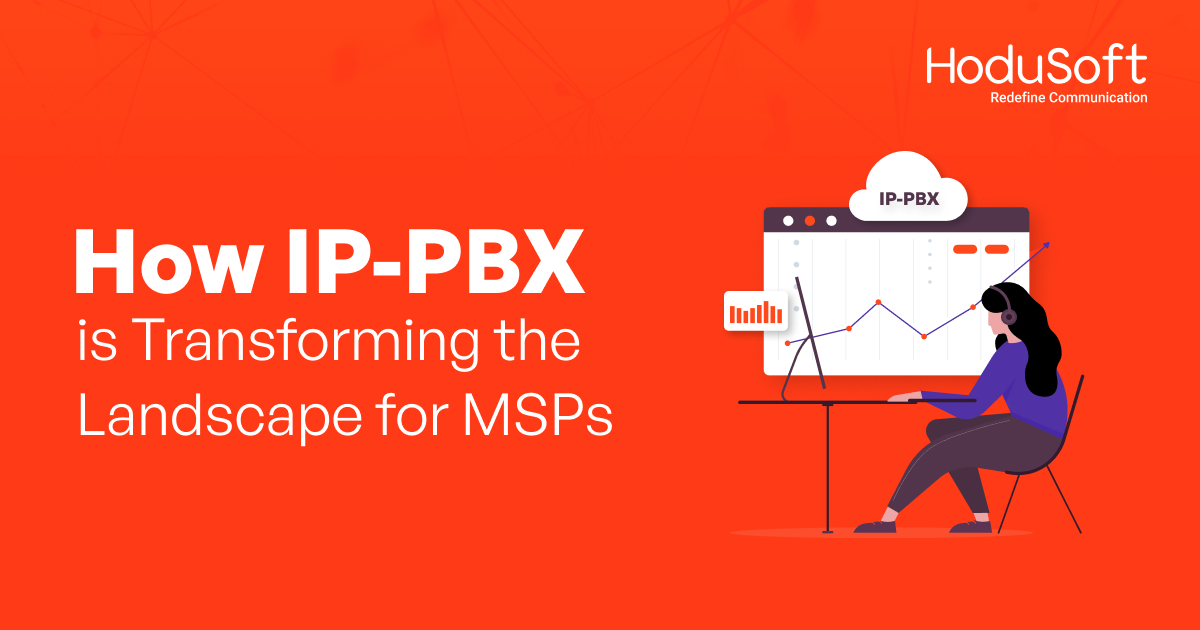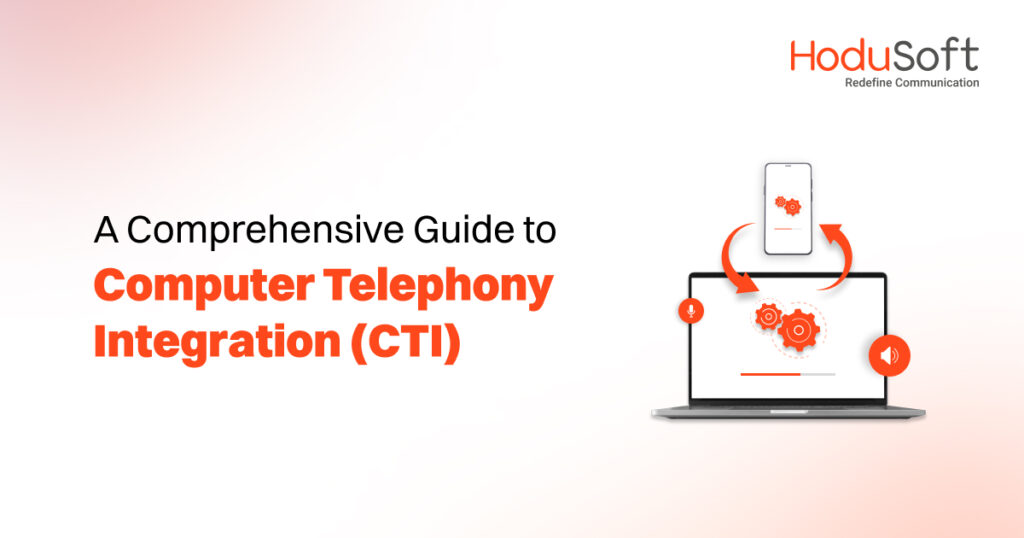The Future of Communications: How IP PBX is Transforming the Landscape for MSPs
“After all, it’s the future of business communication that we’re looking toward.” What former AOL’s CEO James Love Barksdale said for the Internet in the late 90s can be said for Internet Protocol Private Branch Exchange (IP PBX) communication systems in the present era, especially for Managed Service Providers (MSPs).
Being third-party companies, MSPs remotely manage a business’s information technology (IT) infrastructure and end-user systems. They deliver a wide array of services including network, application, infrastructure and security, just to name a few.
The advent of IP PBX telephony systems has revolutionized the way MSPs run their business operations and provide customer support to their clients. As Sean McSpaden, principal legislative IT analyst at Oregon Legislative Fiscal Office, rightly said, MSPs have become force multipliers. And all credit goes to IP PBX systems.
In this blog post, we discuss the ways IP PBX has transformed the communication landscape for MSPs and how you can handpick the right IP PBX solution for your MSP business. Read on and thank us later.
What Are MSPs and What They Do?
Managed Service Providers (MSPs) have rapidly evolved as key players in the IT services industry.
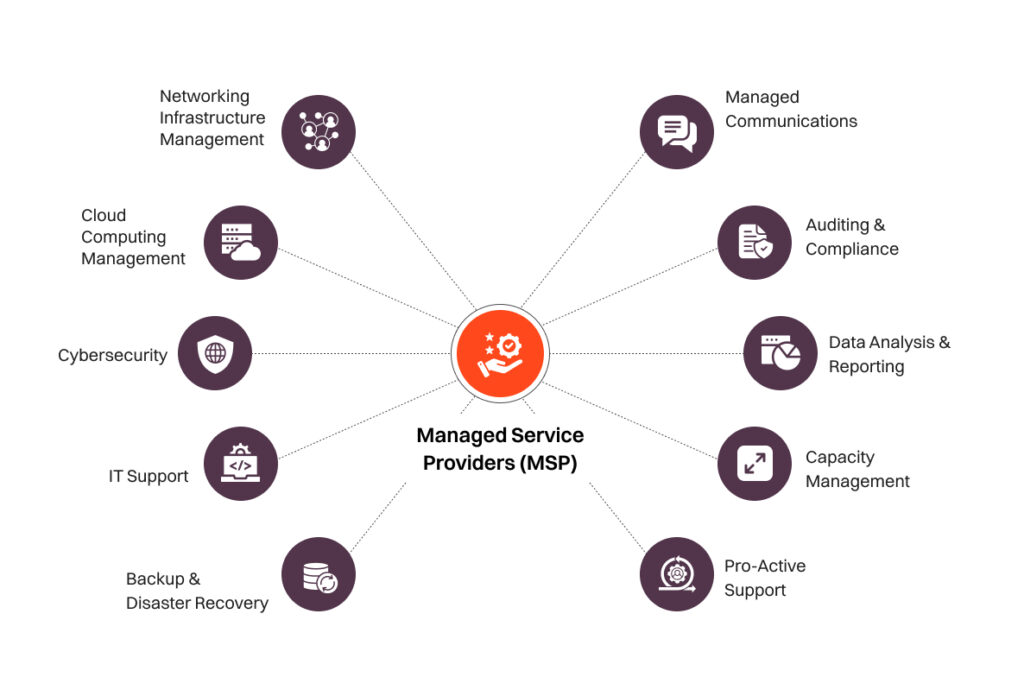
These businesses offer a range of outsourced IT solutions and a comprehensive suite of services such as:
- Networking Infrastructure Management
- Cloud Computing Management
- Cybersecurity
- IT Support
- Backup and Disaster Recovery
- Managed Communications
- Auditing and Compliance
- Data Analysis and Reporting
- Capacity Management
- Pro-Active Support
Industries such as finance, healthcare, and manufacturing have experienced substantial benefits from MSP services, contributing to the overall growth and diversification of the MSP market.
MSPs have expanded their reach globally, providing services to a diverse range of industries. This globalization trend emphasizes the universal applicability of MSP solutions.
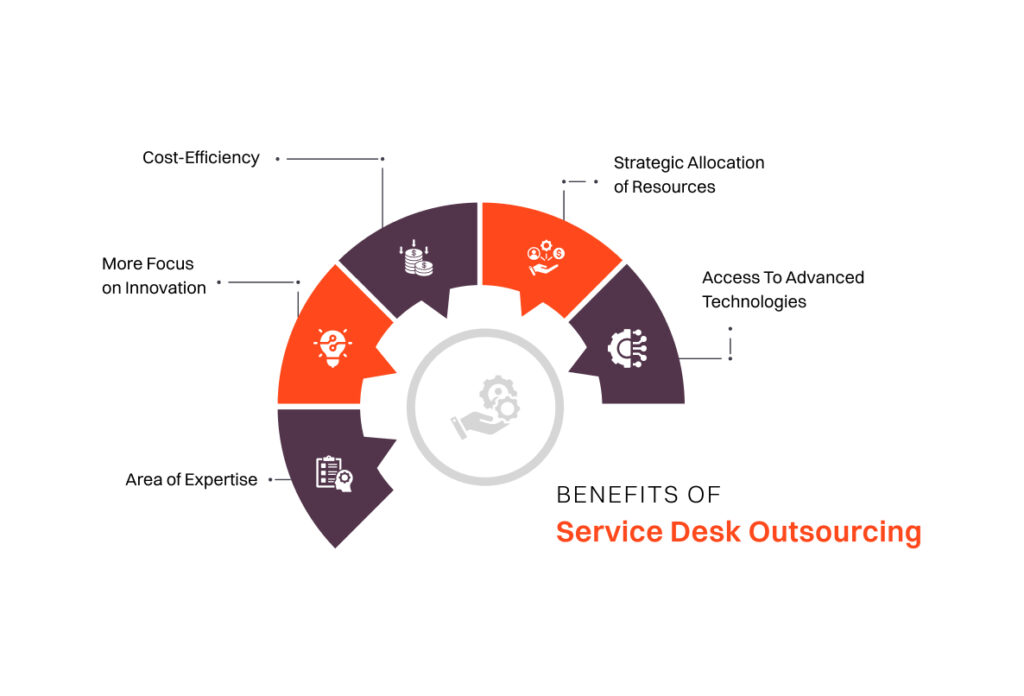
Outsourcing IT services to MSPs allows businesses to focus on their core competencies, such as:
- Area of Expertise: Many businesses have certain specialized expertise. When they outsource IT services to MSPs, they get the time and resources to focus on their core competencies. They also don’t need to hire and maintain a dedicated IT team for the purpose.
- More Focus on Innovation: When businesses outsource their IT services to MSPs, they can focus more on their core areas and be more innovative. The innovation is not just limited to their core products or services but also in several other areas.
- Cost-Efficiency: Let’s face it; managing and maintaining a dedicated IT team needs a lot of upfront investments and concerted efforts. It is not feasible for small and medium businesses to have a dedicated IT facility and team when they can outsource the work to an MSP.
- Strategic Allocation of Resources: When businesses outsource IT infrastructure and services to experts, they can efficiently allocate their resources to the activities that can provide them with high return on their time and investment.
- Access to Advanced Technologies: When businesses outsource their IT services to MSPs, they get access to sophisticated and state-of-the-art technologies. They not only get to leverage the technical expertise of MSPs but also get the best advice from the professionals in the professional service provider firms.
Choosing the Right Multi-Tenant IP PBX Software for Your MSP Business
IP PBX Systems and MSPs
Internet Protocol Private Branch Exchange (IP PBX) stands at the forefront of transformative technologies, redefining communication infrastructures for businesses. IP PBX revolutionizes communication within businesses by providing a unified platform that integrates voice, video, and messaging functionalities.
Unlike traditional telephony systems, IP PBX leverages the power of the internet to unify voice, video, and messaging communication, offering a robust and feature-rich platform for businesses.
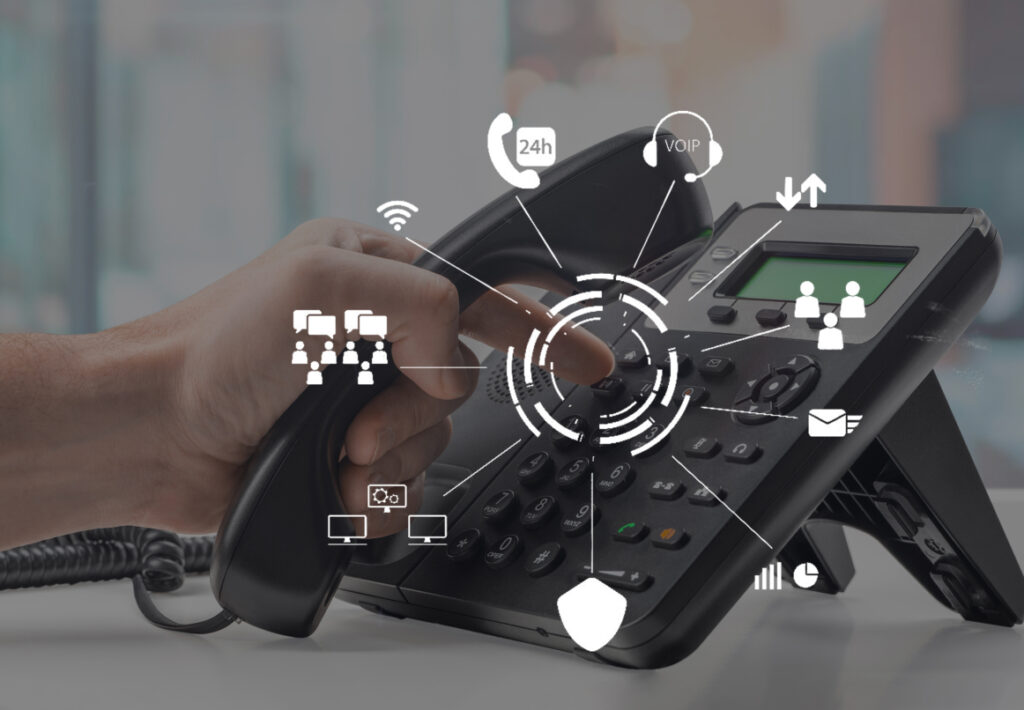
Within the context of MSP services, IP PBX emerges as a strategic tool that not only enhances communication capabilities but also aligns seamlessly with the scalable and adaptable nature of MSP solutions. MSPs leveraging IP PBX witness improved collaboration and efficiency, breaking down communication silos and fostering a more connected and responsive work environment.
Key Challenges Faced by MSPs in the Present Age
MSPs face several challenges in delivering IT services and support to their clients. Some of them are:
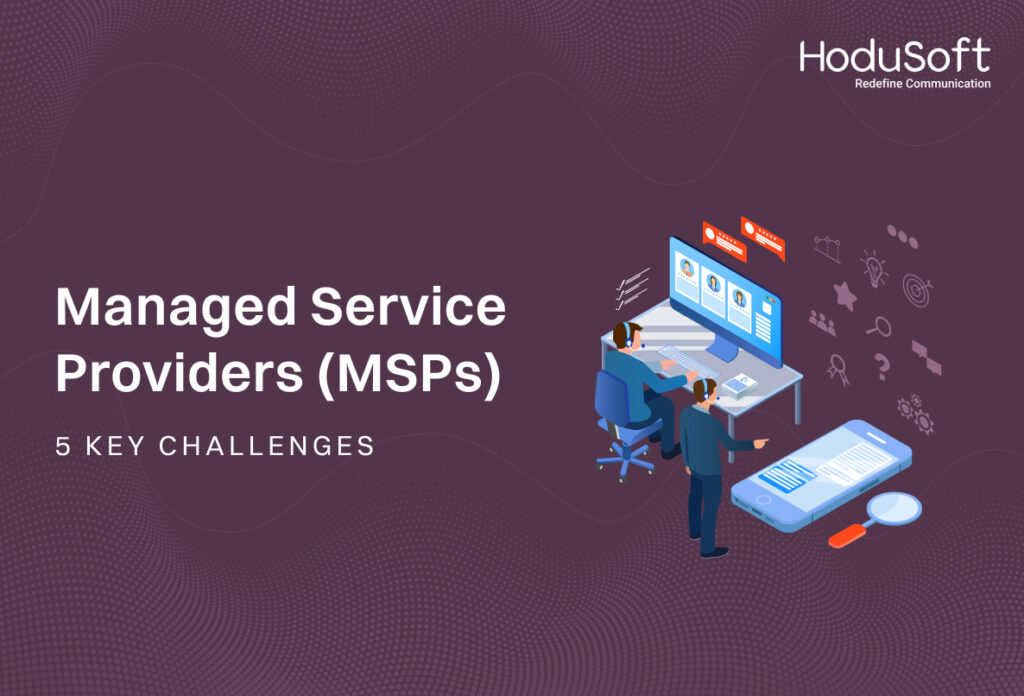
1. Rapid Technological Changes
The IT landscape is evolving at a breakneck speed. With new technologies and solutions emerging regularly, it’s extremely critical for MSPs to stay abreast of the changes to provide clients with up-to-date and relevant services. This requires ongoing training and investment in the latest tools and technologies.
2. Changing Customer Expectations
A majority of clients expect high-quality, reliable, and cost-effective services from their MSPs. This is also due to the rapid changes in digital technology. With new innovations such as 5G and 6G technology, rising cyberattacks, and growing concern for data security and privacy, customers are not willing to settle for anything less than the best. MSPs must meet and exceed diverse needs and varied expectations of their clients.
3. Scalability
As MSPs acquire new clients and expand their services, scalability becomes a critical challenge. Ensuring that the infrastructure, personnel, and processes can scale effectively without compromising the quality of service is a constant consideration.
4. Cybersecurity Threats
With the increasing frequency and sophistication of cyberattacks, MSPs need to continuously update and strengthen their cybersecurity measures. The responsibility of safeguarding client data and ensuring network security can be demanding and requires ongoing vigilance.
5. Cost Management
Last but not the least, running an MSP is not an easy task. It requires a lot of attention and financial commitment. At a time when property prices are rising, balancing the costs of delivering high-quality services with the need to remain competitive in the market can be challenging. MSPs need to optimize their operations to control costs while providing value to clients.
Elevate Your MSP Game with The Future of Communications! Embrace Transformation Today.
Connect with HoduSoft Expert Now!
The Benefits of IP PBX for MSPs in Evolving Communication Landscape
In the changing communication landscape, adopting Internet Protocol Private Branch Exchange (IP PBX) presents a multitude of benefits for MSPs. IP PBX empowers MSPs to deliver cost-effective, efficient, and innovative communication solutions.
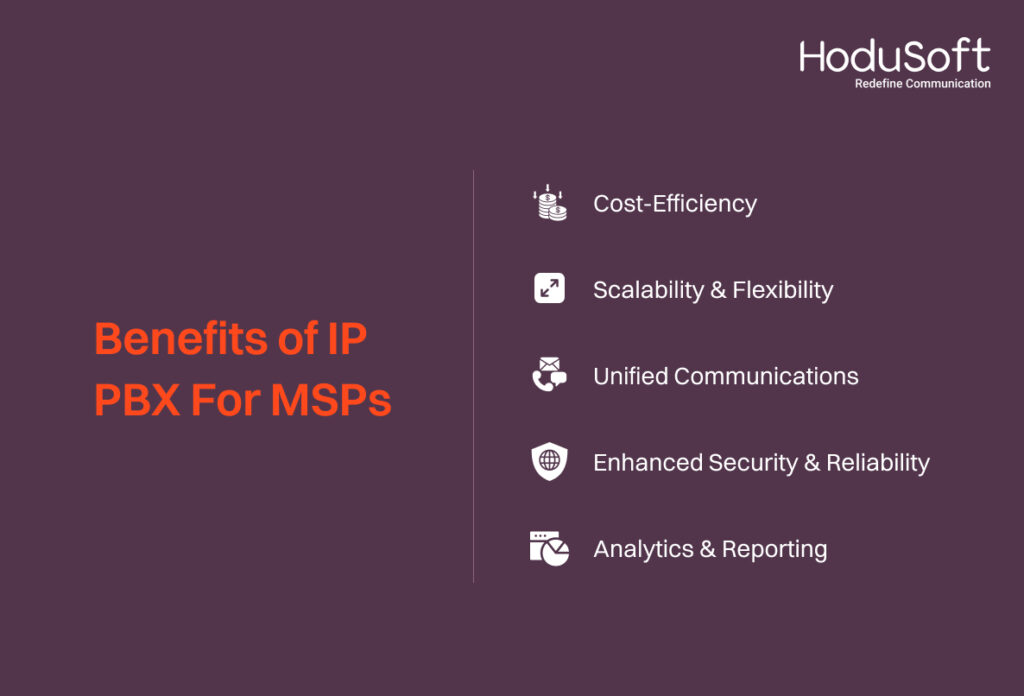
Let’s take a look at some of the benefits:
1. Cost Efficiency
As noted management guru Peter F Drucker rightly said, “The new information technology, Internet and email, have practically eliminated the physical costs of communication.” One of the key advantages of IP PBX for MSPs is its cost efficiency. Would you be surprised to know that IP PBX systems can reduce communication costs of MSPs between 50 and 90 percent? Absolutely not!
Traditional PBX systems often involve significant upfront costs for hardware and installation. In contrast, IP PBX operates on a software-based model, reducing the need for expensive hardware and infrastructure. This cost-effective approach allows MSPs to offer communication solutions to a broader range of clients, including small and medium-sized enterprises (SMEs) that may have budget constraints.
2. Scalability and Flexibility
To paraphrase famous technocrat and Valve Corp’s President Gabe Newell, IP PBX systems offer a huge amount of scalability. As MSP businesses grow, their communication needs evolve. The scalability that IP PBX systems offer is a game-changer for MSPs. IP PBX systems provide scalability if a business has enough employees to take phone calls.
IP PBX allows MSPs to easily scale their clients’ communication systems by adding or removing extensions, lines, and features without the need for extensive hardware upgrades. This flexibility ensures that businesses can adapt to changing communication requirements without significant disruptions.
3. Unified Communications
IP PBX goes beyond traditional voice communication by enabling Unified Communications (UC). UC integrates various communication channels, such as voice, video, messaging, and collaboration tools, into a single platform. This seamless integration enhances productivity and streamlines communication for businesses.
MSPs that use IP PBX systems can provide their clients with a unified and centralized communication platform. This convergence of communication channels not only simplifies the user experience but also improves overall efficiency.
4. Enhanced Security and Reliability
Security is a top priority for businesses in the digital age, and sophisticated IP PBX brings enhanced security features compared to traditional PBX systems. At a time when weak IP PBX systems cause huge losses, MSPs should be extremely particular while selecting the right IP PBX system.
In 2021, IP PBX hacking caused USD 1.82 billion in fraud losses, a recent data revealed. It’s a 28% surge from 2019! IP PBX systems have robust encryption protocols and advanced authentication mechanisms in place. That ensures that communication data remains secure and protected from potential threats.
5. Analytics and Reporting
Data-driven decision-making is a cornerstone of modern business strategies, and IP PBX contributes to this by providing valuable analytics and reporting tools. MSPs can offer their clients insights into communication patterns, call volumes, and user behavior. This data-driven approach allows businesses to optimize their communication strategies, identify areas for improvement, and enhance overall efficiency.
Analytics and reporting features enable MSPs to offer a more proactive and strategic approach to managing their clients’ communication systems. By leveraging data, MSPs can anticipate potential issues, implement preventive measures, and continuously optimize the IP PBX setup to align with evolving business needs.
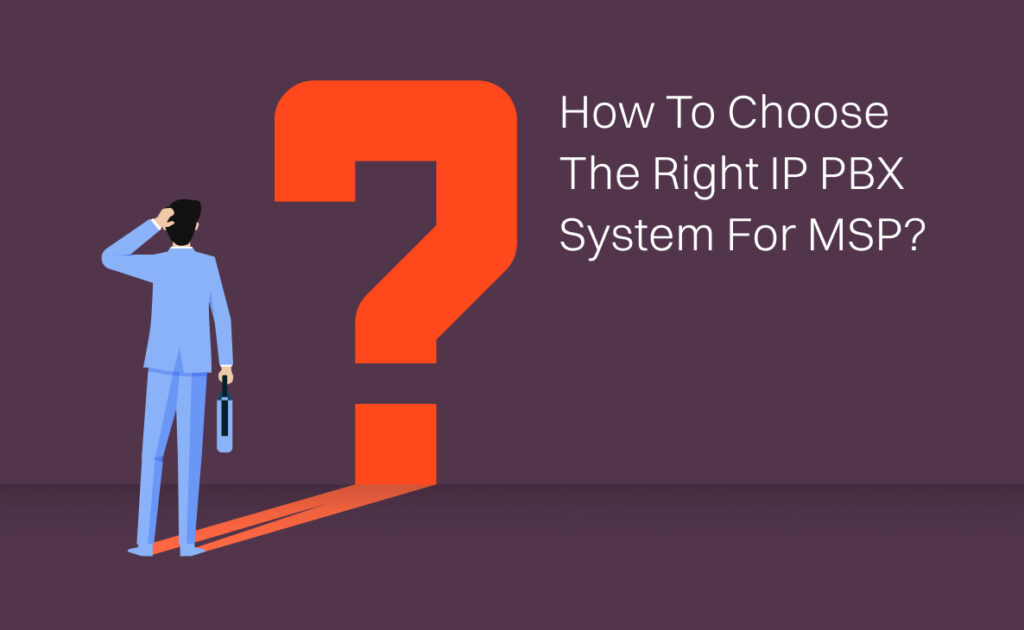
How to Choose the Right IP PBX System for Your MSP?
Choosing the right IP PBX system for your Managed Service Provider (MSP) involves careful consideration of various factors. Here is a step-by-step guide:
1. List the Features You Want in Your IP PBX Software
Determine the essential features your MSP requires. This may include scalability, multi-tenancy support, integration with CRM and other business applications, advanced call routing, call recording, voicemail, conferencing capabilities, mobile integration, and security features. Consider the specific needs of your clients and ensure that the chosen IP PBX can meet those requirements.
2. Set Aside a Reasonable Budget
Establish a budget that aligns with your MSP’s financial capabilities. Consider not only the initial costs but also ongoing maintenance, support, and potential expansion costs. Compare pricing models, such as upfront costs, subscription-based models, or a combination, and choose the one that best suits your business model.
3. Look for Reliable IP PBX Software
Research and identify reputable IP PBX software providers with a history of reliability and good customer support. Check for reviews and testimonials from other MSPs or businesses that have used the same software. Evaluate the vendor’s track record in terms of software updates, security patches, and responsiveness to customer issues.
4. Visit Websites and Do Your Research
Explore the websites of shortlisted IP PBX vendors to gather detailed information about their solutions, features, and support options. Look for case studies or success stories from the vendors to understand how their IP PBX solutions have benefited similar businesses.
5. Contact Shortlisted Vendors and Trial the IP PBX Software
Whenever possible, request a trial or demo version of the IP PBX software to test its functionality in a real-world environment. Engage your team in the evaluation process to gather feedback on usability, performance, and overall satisfaction.
Conclusion:
The future of communications is undeniably shaped by the transformative power of IP PBX. As businesses seek more agile, cost-effective, and feature-rich communication solutions, MSPs are strategically positioning themselves by embracing IP PBX technology.
The shift towards unified communications, remote work enablement, enhanced security, cloud integration, and data-driven insights is propelling IP PBX to the forefront of the communication landscape.
For MSPs, incorporating IP PBX into their service offerings not only meets the current demands of businesses but also positions them as strategic partners in their clients’ digital transformation journey.
As the technology continues to evolve, MSPs will play a crucial role in guiding businesses towards communication solutions that are not only cutting-edge but also scalable, secure, and tailored to meet the unique needs of each client. The future of communications is here, and with IP PBX leading the way, MSPs are at the forefront of this transformative journey.

